April 14, 2025 | 16:29 GMT +7
April 14, 2025 | 16:29 GMT +7
Hotline: 0913.378.918
April 14, 2025 | 16:29 GMT +7
Hotline: 0913.378.918
To meet the goal of over 20,000 hectares of passion fruit by 2025, variety is one of the top issues in Gia Lai province. Unguaranteed seedlings will significantly affect the quality of the garden and product. This will cause difficulties in exporting passion fruit, especially to markets with strict requirements on quality and samples like the US, EU, Korea, Japan, etc.
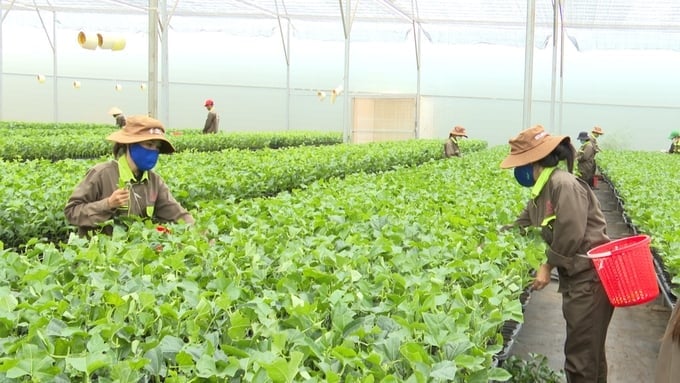
Nafoods’ passion fruit varieties are trusted and chosen by people. Photo: Dang Lam.
To ensure the passion fruit varieties meet the needs of people in the region, in recent years, the Gia Lai Department of Agriculture and Rural Development has proactively coordinated with local authorities to organize selection and recognize 100 passion fruit trees and 14 leading orchards.
According to the Gia Lai Department of Crop Production and Plant Protection, every year, passion fruit seedling nurseries in the province ensure the supply of about 10.86 million grafted seeds, corresponding to the amount of passion fruit varieties supplied to consumers. The market is about 10.86 million trees/year, the new planting area is about 18,000 hectares/year. These seedlings are of guaranteed quality and have undergone extremely strict inspection and control by the authorities.
Determining passion fruit as one of the essential agricultural products, Gia Lai has invited reputable businesses to invest in seedling production facilities with modern technology lines. They also built control rooms to determine the quality of seedlings before bringing them to market. These companies are Nafoods Group Joint Stock Company (Nafoods), Thong Do International Joint Stock Company (Thong Do Company), Doveco Fruit and Vegetable Import-Export Company Limited Gia Lai (Doveco Gia Lai).
Besides the deep processing of passion fruit products, Nafoods is also known as one of the leaders in the production and distribution of passion fruit varieties. In Gia Lai, Nafoods is the earliest unit in passion fruit seedling production.
Mr. Ho Hai Quan, Regional Director of Central Highlands Nafoods, said: “In Gia Lai, our passion fruit nursery can supply the market with about 11 million high-quality seedlings yearly. In 2023 alone, it is estimated that about 5-6 million seedlings will be sold on the market.”
According to Mr. Quan, Nafoods’ passion fruit seedlings have not only been consumed in the Central Highlands provinces but also exported to Laos for many years.
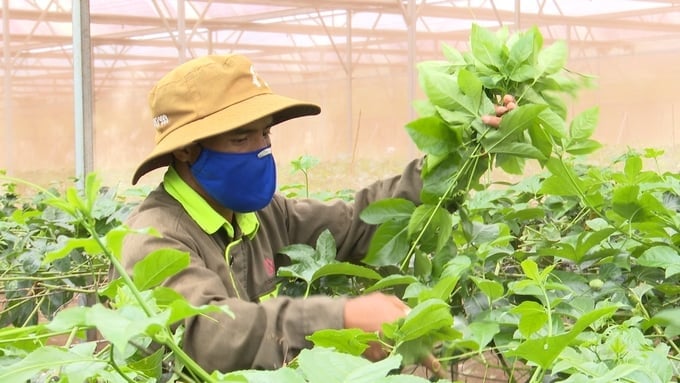
Every year, Nafoods supplies millions of quality seedlings to the market. Photo: Dang Lam.
Also a large unit of passion fruit varieties in Vietnam, Thong Do Company officially started phase 1 of the High-Quality Plant Seed Center in Chu Puh district (Gia Lai) in May 2021. To date, this Center has reached a capacity of over 20 million passion fruit seedlings/year.
Mr. Le Van Tuyen, General Director of Thong Do Company, said: “We sell what people need, not what we have. We apply science and modern technologies to our process with strict control to provide the market with the highest quality seedlings.”
According to Mr. Tuyen, the Company regularly coordinates with localities and cooperatives to organize workshops for farmers.
In Gia Lai, there are currently large-scale seed centers that are registered and certified as top-of-the-line gardens, such as Nafoods, Red Thong Company, Southern Fruit Tree Institute, Doveco, and new nurseries approved by the Department of Agriculture. Gia Lai PTNT issues certification.
From a province that had to import passion fruit seedlings, Gia Lai has become the center of passion fruit seedlings. In addition to providing quality passion fruit seedlings to meet the production development needs of people in the province, Gia Lai’s passion fruit seedlings are also sold to the markets of Lam Dong, Dak Lak, and Dak Nong, Kon Tum provinces and exported to Laos and Cambodia. This is a bright spot in the restructuring of Gia Lai’s farming industry.
Although the number of seedlings ensures the passion fruit development of Gia Lai province, many farmers still need to be reassured about the quality.
In particular, hundreds of small nurseries in Gia Lai are not registered. Seedlings they use will not be controlled and quality guaranteed, so fake seeds are still very difficult to control in the market. Many passion fruit growers still need help finding truly good varieties for themselves.
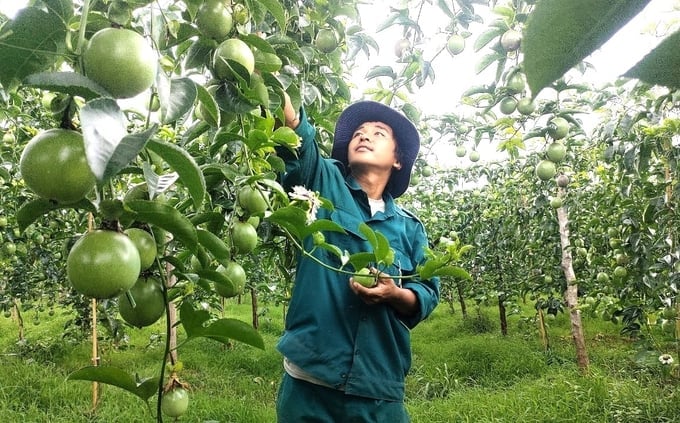
Seedling quality is an issue that farmers are concerned about when investing in passion fruit cultivation. Photo: Dang Lam.
In Ia Ka commune (Chu Pah district), Mr. Thai Van Nam has a 1,000m2 garden planted for two years. He said that although the price of passion fruit has decreased significantly, he still decided to invest in passion fruit. “What I’m most worried about is not the price, because passion fruit – like other agricultural products – fluctuates. What people are most worried about is that the quality of passion fruit seedlings is not guaranteed, which will affect the garden and product quality,” Mr. Nam shared.
According to Mr. Nam, recently, many newly planted gardens have shown signs of pests and diseases. “I hope passion fruit production and nursery establishments will re-evaluate the process varieties, avoiding unnecessary damage to farmers,” Mr. Nam suggested.
Similarly, Mr. Nguyen Van Tai (village 1, Ia Ka commune, Chu Pah district) said that passion fruit is increasingly suffering from pests and diseases, possibly because of the quality of the variety over time. According to Mr. Tai, following the trend to grow passion fruit, his family bought a box of 100 seedlings for a fairly high price. But the passion fruit grew worse than before even though the family planted the same seed variety.
According to Mr. Tai, in the past, nursery units often chose quality trees to supply to the market. However, when people raced to grow passion fruit, nursery units sold them massively without paying attention to quality.
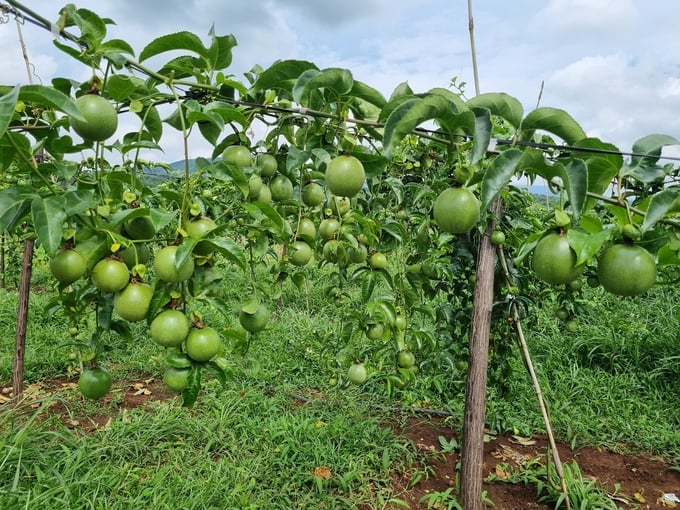
Many people believe that the quality of the seeds becomes worse. Photo: Dang Lam.
Mr. Luu Trung Nghia, Director of the Gia Lai Department of Agriculture and Rural Development, said that many countries now have better passion fruit varieties than Vietnam, with large fruits, thick skin, and exported at high prices. Therefore, it is necessary to have a ministerial-level scientific project on passion fruit varieties to create quality varieties to supply to the market, serving the sustainable development of the passion fruit industry.
In November 2023, Vietnam Agriculture Newspaper, the Department of Agriculture and Rural Development of Gia Lai province and related units under the Ministry of Agriculture and Rural Development will coordinately organize the Forum “Identifying the current situation of passion fruit production, processing and consumption, and Solutions to develop the sustainable passion fruit industry.” Within the framework of the Forum, the Campaign Committee of Gia Lai Province Passion Fruit Association will be launched. The forum will be livestreamed in Gia Lai province and broadcast to about 500 places nationwide.
Translated by Quynh Chi
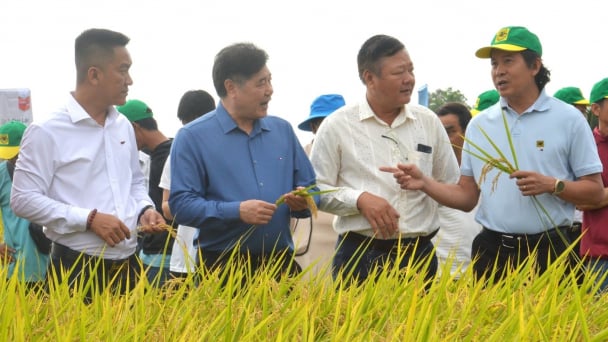
(VAN) The results from pilot fields are catalyzing the expansion of the One million hectares of high-quality, low-emission rice project in Kien Giang.
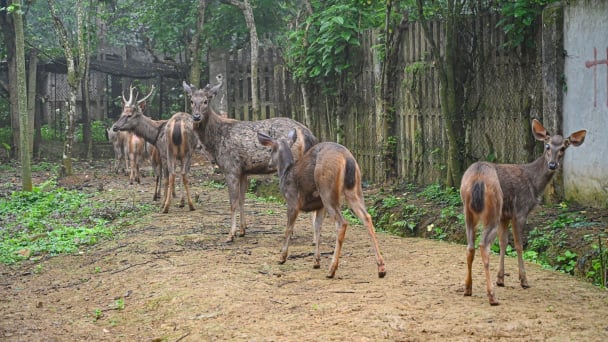
(VAN) On the morning of April 11, Cuc Phuong National Park received 18 individuals of endangered and rare wild animals from Da Nang city.
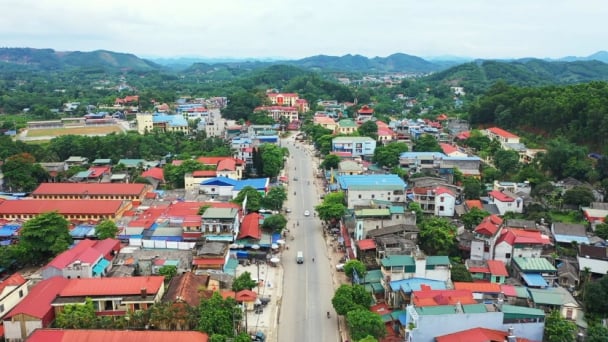
(VAN) FAO supports Vietnam in enhancing survey sampling techniques for the 2025 nationwide agricultural and rural census.

(VAN) By participating in the green transition, manufacturers become an indispensable part of the circular economy, contributing to resource optimization and environmental protection.
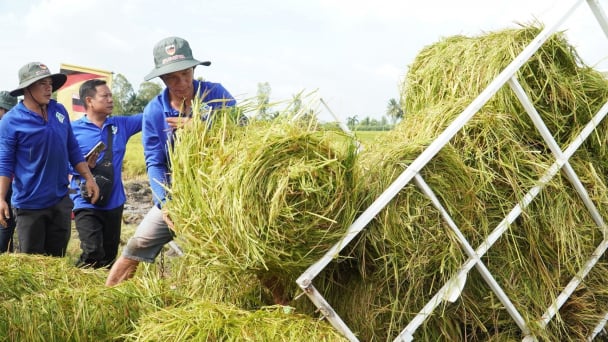
(VAN) The One Million Hectares of High-Quality and Low-Emission Rice Program can generate nearly 14 million tons of straw annually, posing an urgent requirement to diversify straw-based products.
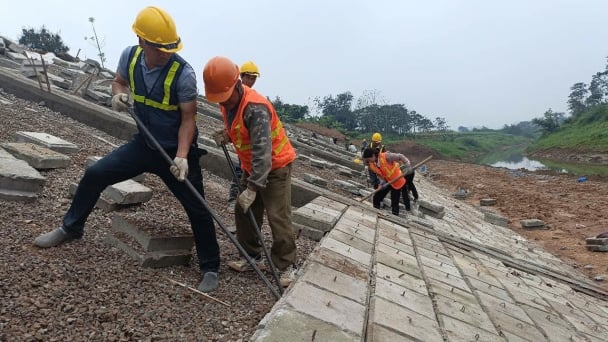
(VAN) This figure was recently announced at a conference held in Yen Bai, focusing on climate-resilient infrastructure development for ethnic minority regions.
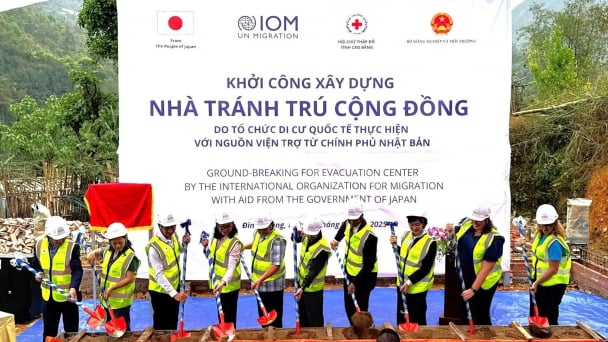
(VAN) The evacuation center is a practical work in efforts to respond to natural disasters and adapt to climate change in vulnerable areas.